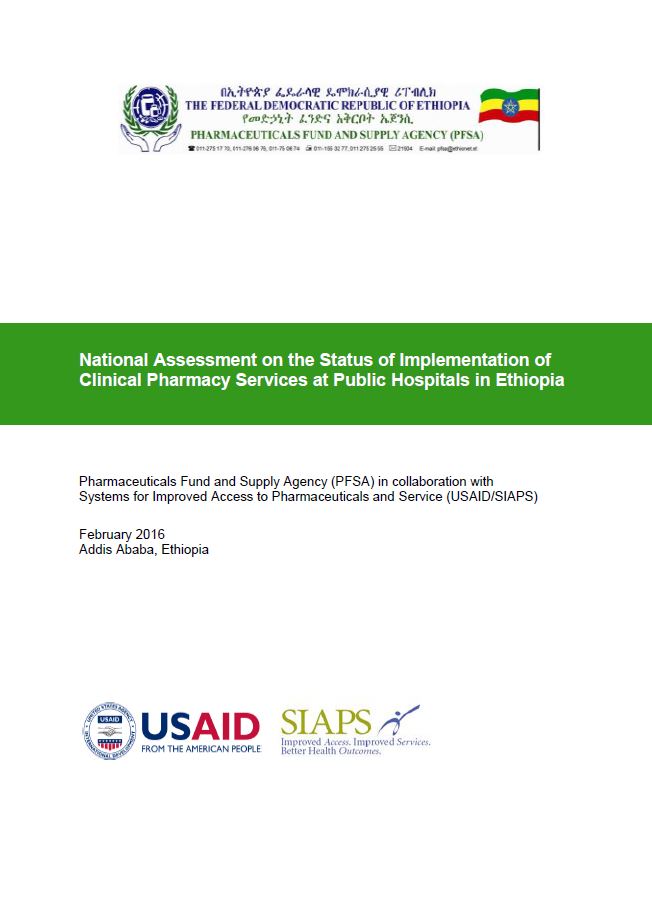
Clinical pharmacy is an area of practice in which pharmacists provide direct patient care that optimizes medication therapy and promotes health, wellness, and disease prevention. Trends in pharmacy practice elsewhere indicate that a gradual shift has taken place from product-focused to patient-oriented practice. In Ethiopia various efforts have been made to initiate clinical pharmacy services (CPS) in public health facilities. Some of these efforts include launching a postgraduate clinical pharmacy program, changing the undergraduate pharmacy curriculum, developing standards and guidelines, and providing in-service trainings. These efforts have led to initiation of CPS in a number of hospitals. The status of implementation of this service, its outcomes, challenges, and opportunities were assessed.
The assessment was conducted with the objective of evaluating the status of CPS implementation at selected public hospitals in Ethiopia to guide future government interventions to improve and sustain CPS.
This was a descriptive cross-sectional study that applied both quantitative and qualitative data collection methods. The study was conducted April 6–17, 2015, on a purposively selected group of 43 hospitals from five regional states and two city administrations of a total 65 hospitals that took part in the in-service training program. The hospitals were selected based on two criteria: participation in clinical pharmacy in-service training and their geographical accessibility. The data collection tool was designed to capture information that is essential to determine the overall successes and challenges in CPS implementation.


